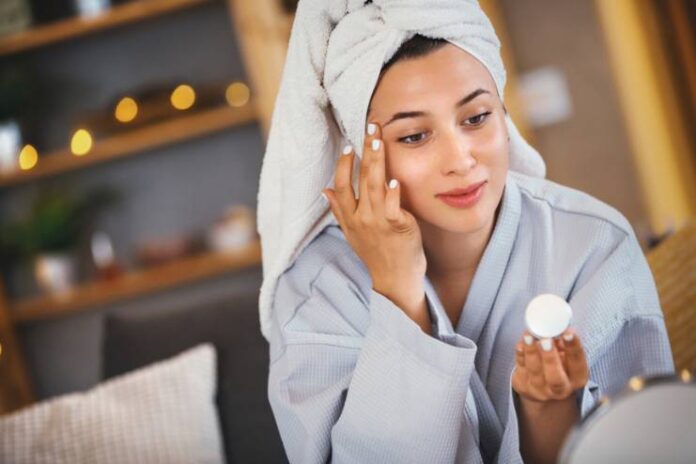Affiliate Disclaimer
Some links in this article are affiliate links. We may earn a small commission if you make a purchase through these links, at no extra cost to you. We only recommend products we find useful to our readersThe constant quest for beautiful skin has led to many common ideas in skincare. With its ever-expanding selection of products and trends, the skincare industry often contributes to spreading these falsehoods. This article aims to clear up the confusion in the industry by exploring common beauty myths.
People who want to establish effective skincare regimens need to know how important it is to distinguish between reality and fiction. The following sections will provide vital information, allowing you to navigate the congested skincare field with clarity and confidence as we dispel perpetuated myths.
Myth 1: Natural Ingredients Are Always Better

The beauty narrative has become embedded with the false belief that skincare products made of natural materials are better by nature. While natural ingredients are appealing, it’s misleading to think they are always the best choice. Scientific studies show that the effectiveness of skincare chemicals depends on factors like concentration, formulation, and individual skin needs, making it a complex issue.
While specific natural components are highly beneficial, others might not be able to address particular skin issues. Furthermore, synthetic ingredients—sometimes demonized to maintain a “clean” skincare regimen—may be just as beneficial in some combinations, if not more so.
Research has repeatedly shown that choosing a product should be based on each customer’s unique needs and concerns rather than a general preference for natural or synthetic substances. Creating a skincare regimen that produces noticeable effects requires understanding one’s skin demands. For example, several synthetic chemicals intended to reduce irritation may provide relief to people with sensitive skin.
The misconception that “natural is always better” greatly oversimplifies the intricate realm of skincare. By recognizing the complex interactions between natural and synthetic components and prioritizing individual skin demands, customers may make educated decisions that result in healthier, more radiant skin.
Myth 2: You Should Always Feel a Tingling Sensation for the Skincare Products to Work
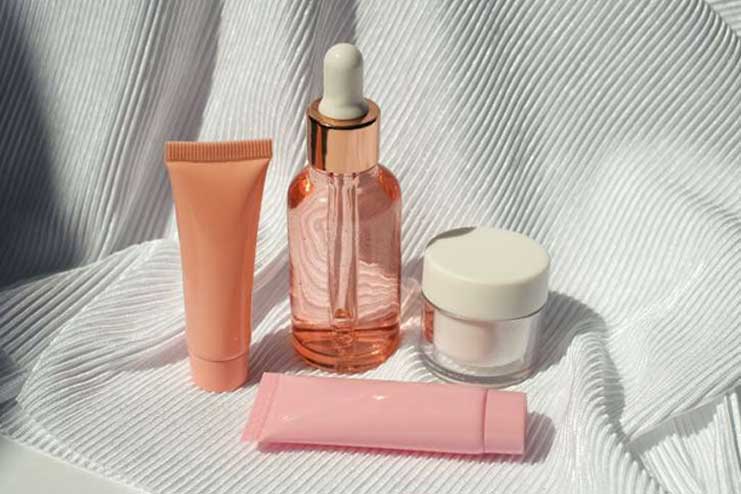
People tend to correlate a tingling sensation with positive outcomes because of the widespread notion that a tingling sensation is equivalent to the effectiveness of a skincare product. Nevertheless, dispelling this notion is of the utmost importance because the truth resides in comprehending the difference between tingling and discomfort.
The assumption that tingling is a sign of efficiency originates from the correlation of sensations with enhanced blood flow or increased skin renewal. While it is true that certain active substances might cause a slight tingling sensation, the misunderstanding emerges when people mistakenly believe that this sensation indicates the product’s effectiveness. This assumption can be deceiving because, in reality, not all effective skincare products need to cause a tingling sensation for the user to experience.
The most important thing to remember is that confusing tingling with irritation might negatively affect your skin. The initial tingling feeling can often conceal an irritation, leading to redness, inflammation, and even lasting damage. For this reason, it is essential to differentiate between a little tingling sensation and a sensation of complete discomfort.
It is of the utmost importance for individuals with sensitive skin to select skincare products that prioritize effectiveness and avoid discomfort. When they have a thorough understanding of the formulations and components designed to make products suitable for sensitive skin types, individuals can choose products that give results without compromising the health of their skin. That said, the most important thing is to carefully select skincare products that meet your skin’s requirements without relying on potentially damaging tingling sensations.
Myth 3: You Don’t Need Sunscreen on Cloudy Days
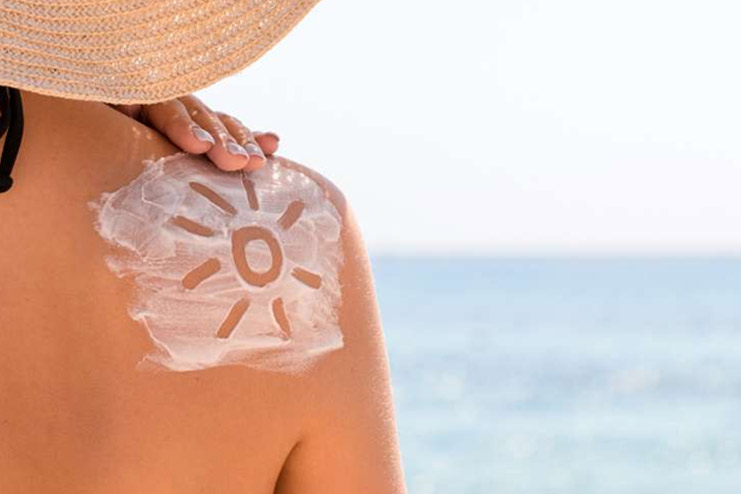
One of the most common misunderstandings in skincare is that sunscreen is only required when the sun is shining. Contrary to common belief, sun protection is necessary beyond a clear sky. Furthermore, it is vital to grasp the dynamics of ultraviolet (UV) rays to keep one’s skin healthy.
There is no evidence that cloud cover is an effective barrier against ultraviolet (UV) rays. Even though it may provide more diffused light and a more relaxed atmosphere, ultraviolet (UV) rays can pass through clouds and go to the surface of the Earth, even on days when clouds are present. It indicates that exposure to the sun without protection during cloudy weather can contribute to cumulative solar damage, accelerated aging, and an increased chance of developing skin cancer.
Use sunscreen as part of your regular skincare regimen to shield your skin from potentially harmful effects caused by ultraviolet (UV) radiation. Sunscreen performs the function of a shield, keeping ultraviolet (UV) radiation from reaching the skin and causing sun damage. It is a preventative practice that helps maintain the health and resilience of the skin, regardless of the weather conditions.
In conclusion, it is essential to dispel the idea that sunscreen is only necessary on sunny days to promote skin protection throughout the year. People can lessen their chance of sun damage and preserve the health and attractiveness of their skin by being aware of the ongoing threat that ultraviolet (UV) radiation poses and by consistently using sunscreen.
Myth 4: Exfoliating Every Day Leads to Smoother Skin
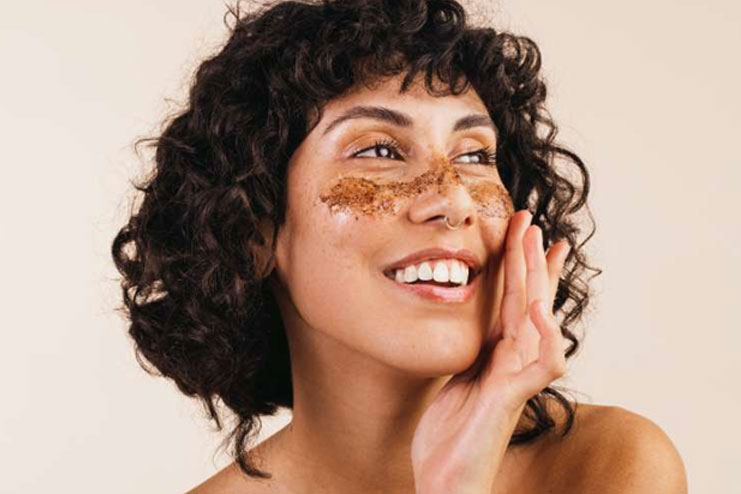
The idea that the best way to achieve flawless skin is to exfoliate your skin frequently has permeated skincare routines. The fallacy that more is always better stems from the assumption that exfoliation helps remove dead skin cells and develop a beautiful complexion. However, this is not true.
Many believe that regularly applying exfoliation speeds up skin renewal, resulting in smoother skin. On the other hand, a more in-depth investigation finds that excessive exfoliation may be related to significant dangers. Regular exfoliation can break down the skin’s protective layer, remove natural oils, and expose it to irritation, redness, and long-term damage. This is especially true when using aggressive or harsh chemical exfoliants.
When it comes to the skin’s renewal process, it is essential to clearly understand that it is a delicate equilibrium and that upsetting this balance with excessive exfoliation can cause more harm than good. It would help if you approached exfoliation individually, considering your skin type and level of tolerance. Those with more sensitive skin may benefit from less harsh exfoliants, while those with more resilient skin may be able to handle exfoliation that occurs slightly more frequently.
Pursuing smoother skin should be approached with prudence, emphasizing the significance of moderation and a nuanced awareness of one’s skin’s requirements. If individuals use a well-balanced approach to exfoliation, they can get the desired results without jeopardizing their skin’s health and resilience.
Myth 5: Higher SPF Means Better Protection
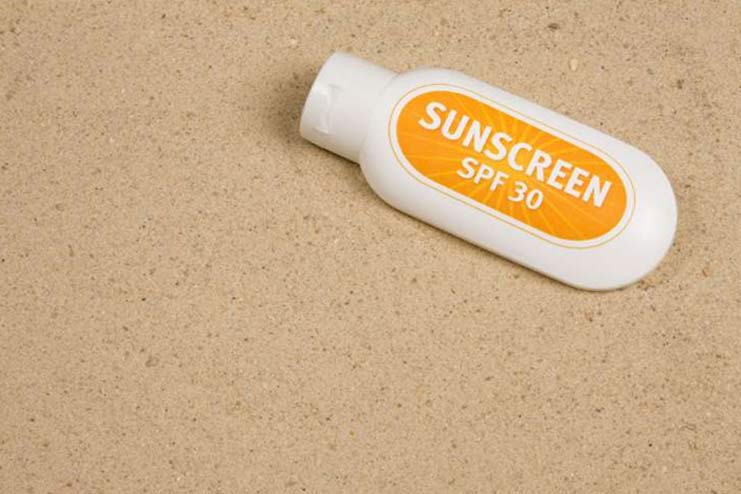
The widespread idea is that a higher Sun Protection Factor (SPF) automatically correlates to improved sun protection. Many commonly believe this misunderstanding. It is necessary to dispel the illusion that a more considerable numerical value provides a perfect defense, even though the sun protection factor (SPF) is essential in protecting the skin from the damaging effect of ultraviolet (UV) radiation.
The sunscreen primarily can protect against UVB rays, which are the ones that could cause sunburn; the SPF value indicates that. On the other hand, they provide limited information regarding protection against UVA rays, which are known to cause accelerated aging and long-term harm to the skin. When you rely exclusively on a high sun protection factor (SPF), you may give yourself a false sense of security since you overlook the significance of broad-spectrum coverage that protects against UVB and UVA radiation.
In addition, the effectiveness of any sunscreen, regardless of the sun protection factor (SPF) it contains, is contingent upon the correct application and subsequent reapplication. Insufficient or infrequent application diminishes the intended protection, leaving the skin vulnerable to sun damage.
Consider applying a broad-spectrum sunscreen with sun protection factor (SPF) of at least thirty to obtain maximum sun protection. Because of this, the protection against both types of ultraviolet rays is balanced. Furthermore, apply sunscreen with diligence, particularly before going out in the sun, and reapply it every two hours or more frequently during activities involving water or prolonged sun exposure. It is necessary to ensure that the sunscreen continues to be effective.
To summarize, the misconception that a higher sun protection factor (SPF) would offer superior protection is an oversimplification of the intricacies of sun care. Selecting a sunscreen that provides broad-spectrum protection and following appropriate application procedures are essential elements for achieving comprehensive UV protection and maintaining the skin’s health over the long term.
Conclusion
As we end our research into debunked beauty clichés, we must recognize that these myths may impact skincare routines. These beliefs can influence ineffective behaviors, ranging from the appeal of natural chemicals to the conviction that tingling sensations are real. When assessing skincare advice, we implore readers to consider credible sources and empirical data. Gain knowledge to empower your quest toward healthy skincare. Visit our website to read more stuff. Let’s move confidently and sensibly through this breathtaking terrain.
References
- https://www.onlymyhealth.com/pros-and-cons-of-natural-skincare-1688732295
- https://www.forbes.com/sites/monicamendal/2021/02/11/natural-doesnt-always-mean-safecommon-misconceptions-with-natural-skincare-according-to-a-dermatologist/?sh=713109614918
- https://www.hindustantimes.com/lifestyle/health/skincare-myths-and-misconceptions-you-need-to-stop-believing-now-for-healthy-and-radiant-skin-101684333047050.html
- https://www.huffpost.com/entry/skin-care-products-tingling_n_5bc63623e4b0d38b58727634
- https://www.ncbi.nlm.nih.gov/pmc/articles/PMC4406515/
- https://www.cancer.org.au/cancer-information/causes-and-prevention/sun-safety/10-myths-about-sun-protection
- https://www.cdc.gov/cancer/skin/basic_info/sun-safety.htm#:~:text=UV%20rays%20can%20reach%20you,cement%2C%20sand%2C%20and%20snow.
- https://www.cancervic.org.au/get-support/stories/7-myths-about-sun-protection.html
- https://www.mayoclinichealthsystem.org/hometown-health/speaking-of-health/myth-or-fact-coconut-is-an-effective-sunscreen
- https://www.healthline.com/health/beauty-skin-care/meaning-of-exfoliating
- https://www.shape.com/ultimate-guide-to-exfoliation-7561709
- https://www.self.com/story/how-often-should-you-exfoliate-your-face
- https://www.mdanderson.org/publications/focused-on-health/6-sunscreen-myths-debunked.h26-1592202.html
- https://www.mayoclinichealthsystem.org/hometown-health/speaking-of-health/myth-or-fact-coconut-is-an-effective-sunscreen
- https://www.fda.gov/about-fda/center-drug-evaluation-and-research-cder/sun-protection-factor-spf
- https://fortune.com/well/2023/08/12/sunscreen-myths-debunked-by-dermatologists/
- https://www.shape.com/lifestyle/beauty-style/spf-and-sun-protection-myths-stop-believing





























